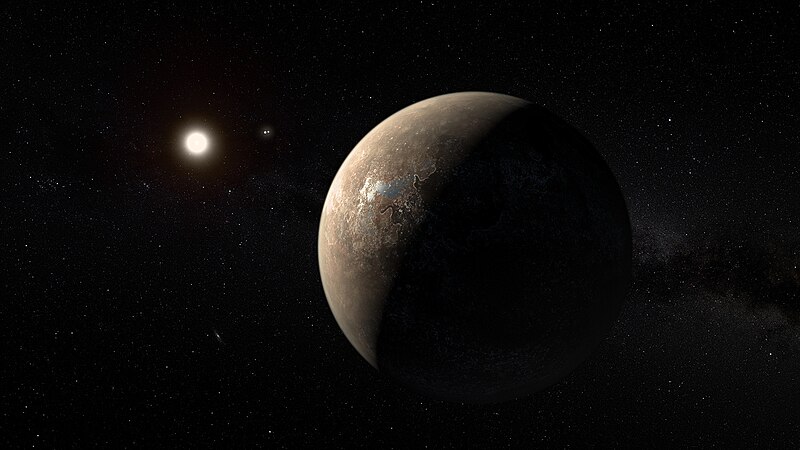
From Jacob Aron at New Scientist,
A planet just 30 per cent more massive than Earth orbits in the habitable zone of Proxima Centauri, which is just 4.25 light years away. How Earth-like is it really?
…
The planet – Proxima b – was discovered by astronomers who spent years looking for signs of the tiny gravitational tug exerted by a planet on its star, after spotting hints of such disruption in 2013. Proxima Centauri is 4.25 light years from Earth, making it slightly closer than the binary star system of Alpha Centauri, which the Proxima star is thought to loosely orbit. More.
From Rob Sheldon
I wouldn’t get my hopes up. Years ago, people didn’t put this type of planet in the “Goldilocks zone”. That’s because of tidal locking.
Very briefly, the tidal force is the difference between gravity on one side of the planet and gravity on the other.
Think of a gravity well as shaped like a funnel. If the planet is really close to the star’s gravity well, then the slope of the funnel is steep, and one side of the planet is lower in the funnel than the other side. This means that there’s a “stretching” force on the planet corresponding to this gravity gradient, which we call “the tidal force”. You and I don’t experience it much, because the difference between 93million miles (distance to sun) and 93 million miles + 5′, is in the parts per trillion. But for this planet that is orbiting a dull red star closer than Mercury is to our Sun, so close that a year is 11 days, this difference starts to get substantial.
So what happens? The planet stretches. Then one side is even closer than before and that side wants to always face the sun. Then like the Moon, it adjusts its rotation so that this side faces the sun 24/7, it is “tidally locked”.
If one side of the planet always faces the sun, it gets hot, while the backside never faces the sun and gets cold. The hot side boils water, the cold side freezes it. All the water migrates over to the freezer, and gets locked in ice. There’s little chance of ever finding liquid water on such a planet. If there is a region where water is liquid, the “Goldilocks zone”, then it occupies a narrow strip where the sun is only half-way above the horizon. But for most of my lifetime, it was expected that even liquid water will eventually evaporate, so that the Goldilocks zone dries out. Then there is no liquid water left on such a planet.
So why are we even considering such a planet “Earth-like”?
Mostly desperation. A few papers suggest that if there is an atmosphere, then convection can bring warm air over to the glaciers on the backside and share the heat. Of course, Mercury and the Moon don’t have much of an atmosphere, mostly because tidally-locking tends to remove it. But hope springs eternal. Especially if it brings cash.
Jut for now, avoid the land rush boom. 😉
See also: “Behold, countless Earths sail the galaxies … that is, if you would only believe …”
Follow UD News at Twitter!